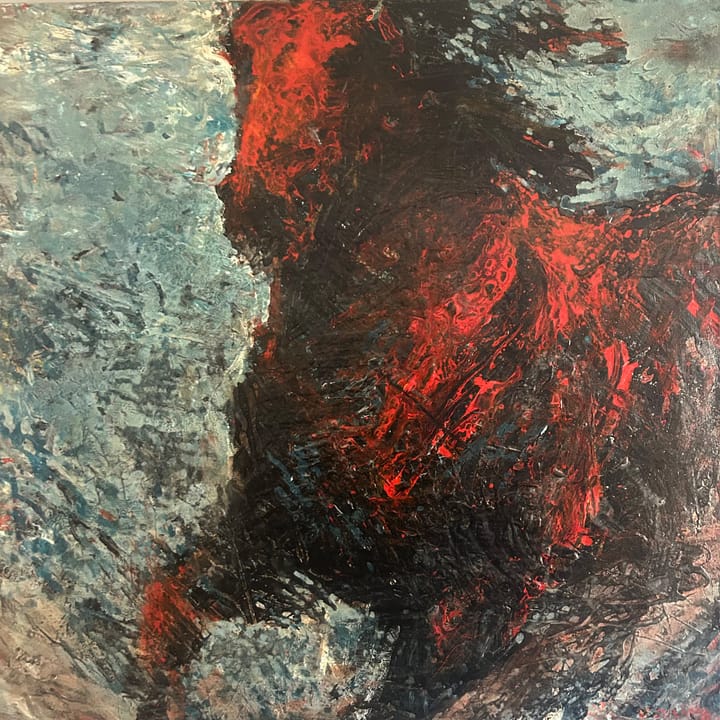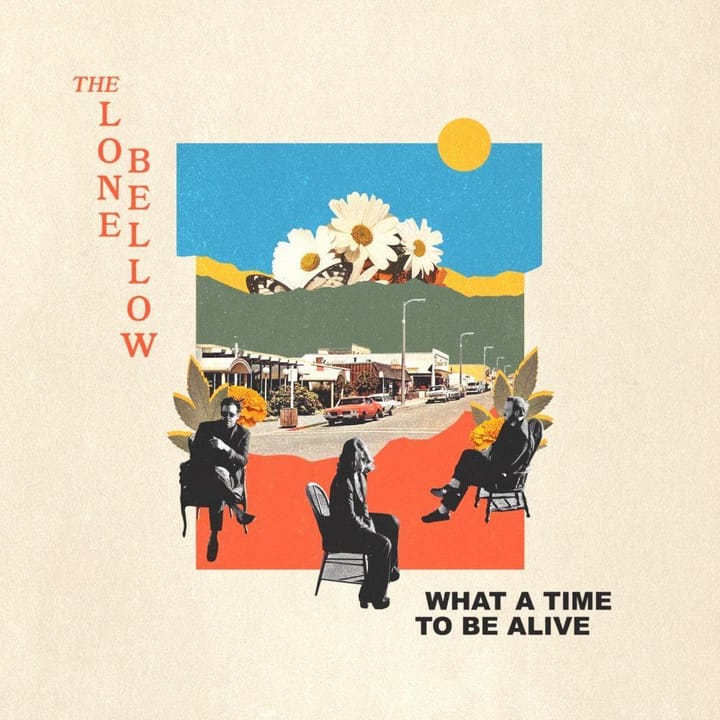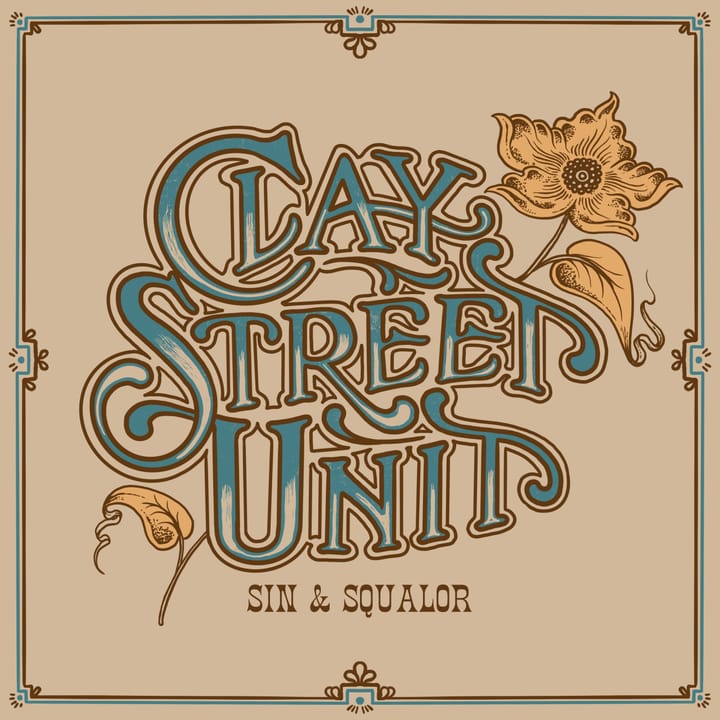Chances are you've heard of Alexander "Skip" Spence, but you probably haven't heard him.
You have, actually, in a sense at least, if you own either of the first two Moby Grape albums. During his 1966-68 stint in the legendary San Francisco band, Spence penned a handful of that group's best tunes, including "Omaha", "Indifference" and "Motorcycle Irene".
His solo album, however, is another matter entirely. Oar was issued by Columbia Records in February 1969, received no promotion, sold a minuscule number of copies, and disappeared. Even two subsequent reissues -- in 1988, on Britain's Edsel label, and again in '91 as a remixed/remastered CD with five bonus cuts courtesy Sony Music Special Products -- were doomed to go out of print, despite such luminaries as Robert Plant, Peter Buck, Robyn Hitchcock and the Flaming Lips praising the album in interviews over the years.
All that professional and critical respect has resulted in a second reissue of Oar, and in the tribute More Oar.
Why has this cult artist and his lone artifact generated such an air of mystique over the last three decades? For one thing, with the Skip Spence story, you get the whole irresistible rock 'n' roll shebang. There was sex (Spence was a charismatic, baritone-voiced, good-looking young man); drugs (LSD reportedly drove him to attack a fellow band member with an axe); mental illness (summarily shipped off to New York's notorious Bellevue psychiatric hospital for six months, he would experience recurring problems, including a long homeless stint, for the rest of his life); and premature death (he passed away from lung cancer this past April 16, just two days shy of his 53rd birthday).
In his 1998 book Unknown Legends Of Rock 'n' Roll, Richie Unterberger attempted to explain the album's out-of-time, therefore timeless, appeal: "Like [Syd] Barrett, Spence conveyed a magical sense of childlike wonder with his one-of-a-kind songs, which fascinate with their eerie tightrope walk between coherence and madness. If Skip was a psychedelic cousin of Barrett's, he drew upon bedrock American blues, country and folk influences to a far greater degree than his British counterpart."
As the story goes, Spence had begun writing new songs while in Bellevue. After getting out in December 1968, he drove to Nashville, spent a week in a studio producing himself and playing all the instruments, and emerged with what Unterberger described as "not psychedelia in the San Francisco sense, but a sort of summit meeting of Delta Bluesmen and the spirit of Haight-Ashbury."
The biblical musings of "Books Of Moses" sound as if they're delivered through clenched teeth, accompanied by a spooky Delta blues guitar. In the strummy country-folk of "Cripple Creek", a "cripple on his deathbed" is visited by an angel and embarks on a surreal final journey. The oddly elegant "All Come To Meet Her" brings to mind images of the Jefferson Airplane charting a plantation-era waltz (Spence, the Airplane's original drummer, actually musters some convincing Jorma Kaukonen-style licks while triple-tracking his vocal to achieve the group harmony effect).
These are clearly not the inaccessible, avant garde ramblings of some basket case. Troubled though he may have been, Spence had the basics of songwriting down, and a musical vision to go with them. He also emerges as a unique vocal stylist: While at times his unadorned baritone might resemble an untrained cross between Dylan's nasal croak and Marlon Brando in The Godfather, elsewhere he's capable of such gorgeous bird-in-flight falsetto swoops that his closest peer may have been Tim Buckley.
Some have labeled Spence as the progenitor of today's naif subculture (Daniel Johnston, Smog, East River Pipe, etc.); aside from the general lo-fi, alone-in-a-room ambiance that surrounds Oar, it was his tendency to steer in whatever direction a song might lean that really makes the case. Abrupt time signature shifts, sound effects and odd vocal treatments make the album seem weird at first, but it's a good kind of discombobulation.
For example, the extended stream-of-consciousness bass/drum/voice drone of the 9-minute "Grey/Afro" still makes no sense thirty years later, but sonically speaking, it's intoxicating. The otherwise straightforward blues of "Books Of Moses" has some off-kilter percussion that sounds like someone in the back room pounding nails into a pie pan. And "War In Peace" is a masterpiece of spontaneous deception, its haunting mood (set up by Spence's wraithlike vocal, a lumbering bassline, and strange electronic birdcalls) abruptly shattered at the end when Spence lurches into the "Sunshine Of Your Love" guitar lick.
Sundazed Records boss Bob Irwin, who produced the 1993 two-disc Moby Grape anthology Vintage, obviously fell under the spell of Oar. Aware that the '91 CD reissue had been substantially remixed, he returned to the original two-track masters and restored them to the mix that graced the original vinyl.
The sonic improvement is startling; there's a clarity and depth to the new Sundazed version of Oar, giving Spence's singing and playing a finer degree of intimacy. Not only does Spence now sound like he's sitting right in front of you, but his guitar has a dry, twangy crispness. Adding lots of echo may have been the Sony remixers' solution to what they thought was a primitive-sounding album; in hindsight, however, it's clear that Spence genuinely was aiming for the kind of raw immediacy of vintage blues and folk recordings.
The Sundazed disc additionally excises some structural tinkering. Among the changes from the Sony version: "Little Hands" doesn't end on a single chord, but fades out; "Lawrence Of Euphoria" has been restored to its original length (shortened by 23 seconds); "Diana" no longer contains the minute-plus guitar rave-up that Sony had appended.
Sundazed's treatment of five bonus tracks that first appeared on the Sony reissue bears mentioning as well. Originally, they were less "songs" (track 13, "This Time He Has Come", was a continuation of "Grey/Afro") than simply fragments in which Spence, sans guitar, experimented with rhythm patterns on bass and drums while testing out lyric and rhyming schemes. (In some spots, he's heard scatting; elsewhere, his offhand manner suggests he's coming up with lyrics on the spot.) "It's The Best Thing For You" is the most tuneful of these tracks, in terms of a regular melody; "Furry Heroine (Halo Of Gold)" is amusingly goofy and full of lyrical non sequiturs (Spence even quotes Johnny Cash at one point). Sundazed has unearthed an additional 30 seconds for the latter tune, giving it a "new" intro. A track mistakenly titled "Doodle" on the Sony reissue is now correctly listed as "Givin' Up Things". And all five cuts have been stripped of their prior echo bath.
The most significant news about the Sundazed reissue, however, is the presence of five additional bonus tracks. They all follow a similar formula -- just bass guitar, percussion and voice -- and a couple ("If I'm Good", "Fountain") are only half-minute snippets. There's a new one-minute "Doodle", a real find, wherein an ebullient (and most likely buzzed) Spence chuckles his way through haphazard rhymes like "at the park after dark, with an old girlfriend (or two) and a quart or two of brew." And "You Know", with its driving bassline, staccato beat and deeply soulful vocal, seems sufficiently promising to have warranted further studio elaboration.
Of course, 'twas not to be. The last things we hear from the Oar sessions are Spence's talkback: "We out of tape? Did I just run out? Okay..."
More Oar was assembled over the course of a couple of years by Bill Bentley, who clearly treated it as a labor of love.
Bentley, a longtime Warner Bros. publicist and occasional guerrilla producer (he also was responsible for Sire/Warner's 1990 Roky Erickson tribute Where The Pyramid Meets The Eye), fell under the spell of Oar back in 1969. In his liner notes for the tribute disc, he calls the original album "a funky and fractured declaration of independence...like free-falling into Alice's wonderland. Spence was the only person I heard [in 1969] who sounded like he had even less to lose than me....This album sounded like one big psychic bandage."
More Oar is presented in the same running order as its inspiration, with the dozen LP songs followed by the first CD reissue's five bonus tracks. As with most tribute albums, it's not perfect, although its flaws are few. Among them: Engine 54's whiteboy reggaefication of "It's The Best Thing For You"; the Ophelias' grating, vaudevillian "Lawrence Of Euphoria" (on Oar, the tune was at best a Thorazine-addled nursery rhyme); and Beck's "Furry Heroine (Halo Of Gold)" -- Spence's version, to be fair, was disjointed, but by "Beck-ifying" it and even recycling a keyboard riff from his own "Jack-Ass", Beck curiously supplants Spence's weirdness with his own.
On the upside, however, there are some astonishing moments on More Oar. Mark Lanegan and Alejandro Escovedo do Spence's deep roots proud on "Cripple Creek" and "Diana", respectively. Lanegan's husky growl is remarkably close in tone and texture to Spence's, whereas Escovedo clearly knows his way around a desperately creepy Spence moan. Mudhoney's Mark Arm speak-sings the vocal of "War In Peace" to excavate the song's dark, cynical side (Spence had adopted an airier, Tim Buckley-like upper register), while the band's subterranean, echo-drenched arrangement perfectly ladles out the dread. Other high points include the tracks by Flying Saucer Attack ("Grey/Afro"), the Minus Five ("Givin' Up Things") and Jay Farrar ("Weighted Down").
Significantly, it's a pair of veterans -- who quite possibly purchased Oar upon its initial release -- who submit the best performances on More Oar. Robert Plant gives "Little Hands" a breathless, celebratory urgency, bringing to life Spence's images of innocent children dancing happily, of "little hands clapping" and praying for "a world of no pain, for one and for all"; the song's acoustic guitar, upright bass and vibraphone arrangement is gorgeously low-key. And if Plant nails Spence's mood upswing, leave it to Tom Waits to capture the songwriter in mid-plummet: "Books Of Moses" is terrifying, its bone-rattle maraca, swampy guitar twang and Waits' apocalyptic, judgmental wail an uncanny re-envisioning of Spence's original, whose thunderstorm effects, lurching percussion taps, acoustic blues guitar and tense vocal were unsettling enough the first time around.
Bentley even pulls a rabbit out of the hat for the finale. Following 5-1/2 minutes of silence after the last track, you suddenly hear an unmistakable voice laughing; then after an array of bass notes, guitar feedback and Indian percussion, the voice edges into an eerie, William Burroughs-style recitation. Sure enough, it's Spence's "Land Of The Sun", recorded a few years ago for the X-Files album but deemed too bizarre for final inclusion. How fitting to let Spence himself get the final word.




Comments ()